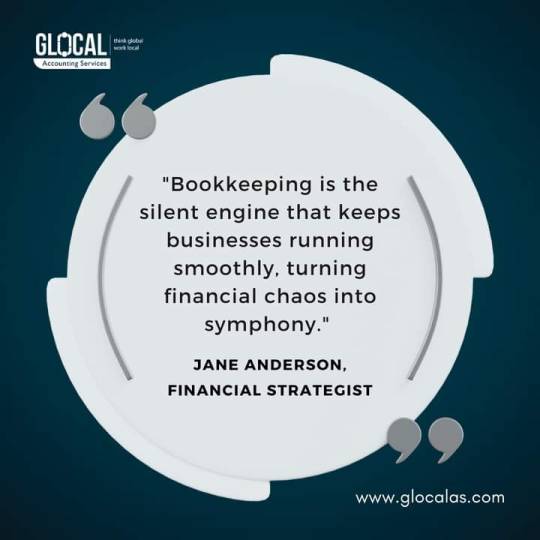#sales tax
Note
Do all cons in the US require I get a sales tax permit? Also can I use one permit for all states?
Kiriska: Most major conventions will require a sales tax permit. Some even require the permit just to apply to the con. Some may not, but you should always check specific cons for their requirements. I'd recommend being permitted even if the con doesn't require it.
Every state has its own sales tax system, so you need to get an individual permit for every state that has a sales tax. Yes, it's a pain, but that's the reality of doing business across state lines. (States without sales tax don't require sales tax permits, but may require other paperwork.)
I highly recommend also having regional sales tax programmed into your POS and setting a reminder to switch/update them between shows. Sales tax can vary between cities and counties, in addition to state, and you're likely going to need to report the amount for each region.
For example, I mostly just vend in Washington state these days, but I still have individual tax rates in Square for Seattle, Tacoma, Unincorporated King County, Bellevue, Lake Forest Park, Olympia, etc... When I report sales tax annually, I separate out and report the sales per region, because they all have different tax rates.
✨Small biz lyfe ✨
Further reading: #sales tax, #taxes, #permits and licenses
29 notes
·
View notes
Text
International Taxes
Ko-Fi prompt from Ethan:
All I know about tariffs is that they're special taxes for international trade but people talk about them all the time. Please help explain
So we are going to talk about three things here:
Tariffs
VAT
Customs/Duties
I'll be using the US for most of my examples, because that's what I know best... and also because it's a very convenient example for the way VAT works on an international level.
Tariffs
You are correct that tariffs are special taxes for international trade. These are essentially fees that are applied to products being shipped in and out of a country in order to promote domestic product or impact a foreign one.
A common example is US steel. The United States has a fairly robust steel industry, and the government promotes that industry domestically by applying tariffs to imports. Back in 2018, Trump imposed a 25% tariff on steel imports and 10% on aluminum (something that the WTO said was illegal, but that's not relevant right now). The steel tariff had previously been a range of 8-30%, implemented by Bush in 2002. Prior to that, the steel tariff had generally been under 1%.
In applying that tariff, the federal government prioritized domestic purchasing. If domestic product is nominally $90 for one unit, and foreign product is $80, then it is cheaper and more appealing to buy from a foreign producer. With a 25% tariff, the foreign product is now functionally $100 per unit, making it more appealing to buy domestically. While the actual cost of the tax is born by the producing country, in the case of import tariffs, the result is the raising of costs when selling internationally.
Tariffs are also applied to specific countries. Once again using a Trump example, a $50 billion tariff was applied against China in 2018. This had negative impacts on the economy, as it led to worries of a trade war; China did retaliate by applying tariffs directly to specific products from the US, including wine and pork.
High tariffs theoretically lead to an increase in domestic trade, but they also lead to higher rates of smuggling. They are also a form protectionist policy, which was at its height in the 19th century for the US.
VAT - Value Added Tax
If you look up VAT, you get a lot of explanations that talk about how it is a tax that is levied against the consumer on the basis of the cumulative value of the product, and generally things are confusingly worded, so I'll save you some time:
It's sales tax.
If you are American like me, that's all it is. It's a different name for sales tax.
You get something for $8 at the store, but the final cost is $8.42? Those 42 cents are the VAT.
What does that have to do with international trade? Isn't that a domestic thing?
Well, yes and no. We'll start by comparing the US to most European countries.
See, the US has a different application of VAT than a lot of other places. In the US, sales tax is added at the very end of a purchase for the vast majority of places. This is because there is no federal sales tax. Instead, taxes are set by the state, county, and city governments. Take a look at this map of New York, and you'll see how much sales tax varies by just a few miles.
Given how much a pricing can vary from one town to the next, large corporations generate a greater profit by listing prices in their pre-tax form, and then adding that tax at the end. The consumer knows that there will be a higher price at the counter than is listed, because the standard in the US is to not include that tax. So your Arizona Iced Tea will be a $1 in Portland and $1 in Queens County, matching that promise on the can... but you'll still be paying $1 in Portland and $1.09 in Queens, because only one of those areas has sales tax, despite both being in the same country.
This works out for the retailer, because the consumer does not blame them for raising prices across county lines, if there is a sales tax hike. The thought of "it's cheaper ten miles down the road, I'll get to it later," followed by never getting to it and thus never making a purchase, is rarer, because the listed price is still the same. It also means having to print or design fewer price tags; imagine having to manually change every price in a supermarket magazine! Every coupon needs to have its price changed by a few cents, to account for tax!
...or you can just print the same magazine with the same prices and write "plus tax" after the listed cost.
All this to say, Americans are used to adding sales tax at the end, and knowing that the price they see is not the price they'll pay.
Other countries Do Not Do This.
I mean, some do. But we're talking about the ones that don't, which includes the entirety of the EU, India, some of Japan, and the country I actually have extensive experience with: Serbia.
I am currently in Serbia, which means I'm in a country with a sales tax/VAT that is higher than I'm used to (20% on most goods, 8% on essentials). In every store I've been to, the tax is included in the listed price. If it says 87 rsd on a carton of milk, I will be paying 87 rsd at checkout. The baseline price is 80 rsd, and then there's the 8% tax, and the final price is 86.4, which gets rounded up to the 87 that is listed on the tag.
If you aren't accustomed to thinking about VAT like in the US, online shopping can be... a trial.
If I purchase something from, say, Canada, and have it mailed to the US, I am given the sales tax as part of the purchasing process. It will format the receipt as the product plus sales tax. This is familiar to me.
To someone from the EU who does not purchase internationally (specifically from the US, Canada, or other countries that don't include sales tax in the sticker price), this tax can often come as a surprise.
And, finally, in some cases... the will be paid at the very end, at the point of pickup, along with customs. I recently purchased something from an English creator that was manufactured in Germany and then shipped to Serbia. I anticipated that I had paid the VAT for Serbia when purchasing the product. It was instead added at the point of purchase, as Serbia is neither in the EU nor in a trade agreement with the relevant countries that would allow for me to pay the VAT online, I had to pay the 20% in addition to customs when picking up the package from the postal office.
Despite not being a tariff or customs/duty payment, VAT can have a direct impact on international purchasing.
Customs/Duties
Customs and duties are taxes applied to products based on those product characteristics.
There is overlap with tariffs. As a consumer, you are... not going to be very affected by the difference between customs and tariffs.
Customs are like VAT, in that they are paid by the consumer rather than by the manufacturer.
You can think of tariffs as a fee that a manufacturer pays to sell something internationally (though that cost is often passed on to the consumer), and customs as a fee paid by a consumer to receive that good.
Hope this helps!
(And if anyone here is more familiar with the subject than I am, please feel free to add on or correct me! I'm generally pretty good about international policy, but I'm not an expert, and this subject can be a complicated one.)
(Prompt me on ko-fi!)
#taxes#tariffs#taxation#customs#duties#sales tax#vat#phoenix posts#ko fi#ko fi prompts#economics#ko-fi#economics prompts
98 notes
·
View notes
Text

Thanos is grape.
#big gulp#thanos#dank memes#avengers infinity war#gamora#7-11#7 eleven unveils ‘coffee of the future’ change that will give customers hundreds of new options to choose from#marvel cinematic universe#josh brolin#sales tax#purple guy
5 notes
·
View notes
Text

And we don’t even get any say in where our tax money goes.
#taxes#tax money#irs#internal revenue service#tax season#sales tax#income tax#property tax#personal property tax#government#state governments#federal government#spending budget#scam#scammers#scamming#robbery#it should be illegal#illegal#highway robbery#united states government#united states of america#USA#United States#America#american government#theft#bullshit#we’re being robbed#reality
97 notes
·
View notes
Link
14 notes
·
View notes
Text
Do tourists think that taxes stop existing when they leave their hometowns? Do other states just not have sales tax? A customer came in and complained about the price of the room (we're the cheapest motel on the island, so they can feel free to stay somewhere more expensive for all I care), and they asked if they could get a discount if they paid cash. "Would you still take the taxes out?" Yes. Because if we didn't, that would be tax fraud, and my boss or I could go to jail. Just because the crime is white collar doesn't make it not a crime. I'm no fan of the taxman double dipping on every cent we earn and spend, but I'm not gonna cut you a $10 break when it's my ass on the line. Does the IRS not do audits where you come from? I'm not gonna break the law so a rich asshole can save a couple bucks on their already ridiculously underpriced tropical vacation. My boss is an outlier. She keeps prices low on purpose, undercutting everyone to keep the keys accessible to "normal" people, and she still manages to rake in dough hand over fist. If you think $101.25 is scandalous but you're okay with $90 even, then I don't know what to tell ya.
#rant#my job#work#night shift#all tourists are bastards#the customer is always wrong#taxes#tax#sales tax#7.5% sales tax plus 5% lodging tax#12.5% total#deal with it#tax fraud#under the table
23 notes
·
View notes
Text
When Kevin McCarthy was just a handful of votes from becoming House Speaker, he promised a lot of wacky stuff to right-wing holdouts, from investigatory rabbit holes to rules changes to votes on legislation so bad or unpopular it would normally never see the light of day. In that last category, McCarthy promised Georgia congressman Earl “Buddy” Carter that he would hold a floor vote on a version of the “Fair Tax” proposal that has been kicking around the conservative fever swamps since the early aughts, when Atlanta talk-show host Neal Boortz popularized the concept and talked some politicians into promoting it. Carter loyally backed McCarthy, and all of the Speaker-vote holdouts joined in his call for a floor vote on his bill, reflecting its popularity in the House Freedom Caucus.
The basic idea is to replace today’s federal taxes — income taxes, estate taxes, Social Security payroll taxes, corporate taxes, even gift taxes — with a single federal sales tax. It would obviously have to be set at very high rates, at least 30%, by most estimates, to offset the revenue lost from ending the other taxes. Carter’s proposal would include “prebates,” i.e. federal payments to low-income households, to reduce the impact of a high tax on living essentials. But there’s no way to make this sort of tax system anything other than a large boon to people with income and wealth far beyond what they need to live on, which if saved or invested would remain tax free. That’s why the Fair Tax has a perpetual fan base among consumers of right-wing talk and grassroots conservative activists. Because of Boortz’s role in promoting the scheme, it has become something of a Pet Rock for Georgia Republicans in the House, where Carter has picked up the torch originally carried by veteran conservative lawmaker John Linder.
Proponents of the Fair Tax boast that it would lead to the abolition of most of the federal tax code and of the Internal Revenue Service, making April 15 just another day (albeit another day of very high taxes on sales). But there’s another wrinkle that makes the Fair Tax not just wildly regressive but extremely risky in the unlikely event it were ever enacted, as The Bulwark’s Jim Swift explains:
“To ensure that the legislation actually replaces rather than adds to existing taxes, [Carter’s] bill includes a provision that the new tax would expire in seven years if the Sixteenth Amendment, which allows for federal income taxes, is not repealed. (Keen-eyed readers will notice that this creates the bizarre possibility of federal tax revenue going down to zero after seven years, if income taxes are not collected but the Sixteenth Amendment remains on the books.)”
Anyone familiar with how hard it is to enact constitutional amendments will be alarmed at this provision. Then again, for all its popularity among regular folks who think of themselves as virtuous tightwads, the Fair Tax has never been taken very seriously in Washington, even among conservatives. Yes, 2008 presidential candidate Mike Huckabee campaigned on it, and it has always hung around the margins of public policy like a recurring nightmare. But the more moderate Republicans hate it as a seductive but unworkable scheme that would brand the GOP as the party of high sales taxes rather than the party that wants to keep all taxes as low as possible.
Democrats, of course, are eager to hear a lot more about Republican support for the Fair Tax, as Joseph Zeballos-Roig of Semafor observes:
“Outside the deepest trenches of conservatism, a 30% sales tax is mostly seen as an obvious political loser. Democrats, for their part, can hardly seem to believe their luck that their opponents might attach themselves to it.
‘Great idea,’ Biden deadpanned during a speech Monday. ‘It would raise taxes on the middle class by taxing thousands of everyday items from groceries to gas, while cutting taxes for the wealthiest Americans.’”
You’d normally figure the Fair Tax chestnut would get buried in the Ways and Means Committee with a lot of other tax-policy proposals that won’t see the light of day in the Senate. But McCarthy promised Carter and his friends a floor vote. The question is how long he can delay the fulfillment of that promise and whether putting it on the back burner risks a grassroots rebellion from the kind of people who consider progressive taxation deeply immoral. It’s one of many calculations McCarthy will have to make to get through the next two years without losing his gavel to a motion to vacate the chair and without creating too much campaign fodder for Democrats.
#us politics#news#intelligencer#rep. Earl Carter#georgia#fair tax#Neal Boortz#house freedom caucus#conservatives#republicans#gop#taxes#federal taxes#sales tax#John Linder#prebates#Internal Revenue Service#federal tax codes#The Bulwark#jim swift#16th amendment#Mike Huckabee#semafor#Joseph Zeballos-Roig#Ways and Means Committee#118th congress#us house of representatives#rep. kevin mccarthy#speaker of the house#2023
10 notes
·
View notes
Text
3 notes
·
View notes
Text
After being told that a Final Four would bring trillions to the area, the city of Glendale accepts that they made almost nothing off it
Around 2010, the NCAA told Final Four host cities to generally expect an economic boost between $70 and $200 million. Last year, Glendale, Arizona was told that it could make $270 million dollars in economic impact from hosting a Final Four event in 2024. This year, some groups mentioned the possibility of the state making an impact between $250-$300 million from the Final Four. Others believed…

View On WordPress
#Arizona#Billions#Dave Berri#Economic Benefits#Economic Impact#Final Four#Glendale#Hotel Tax#Kevin Phelps#NCAA#NFL#Phoenix#Sales Tax#Southern Utah University#Sports Economist#State Press#Super Bowl#Tax Revenues#Trillions#Utah
0 notes
Text
Navigating Sales Tax & Payroll Tax: Expert Assistance for Businesses

For businesses, staying compliant with sales tax and payroll tax regulations is essential to avoid penalties and maintain financial stability. At SAI CPA Services, we understand the complexities of sales tax and payroll tax and offer expert assistance to help businesses navigate these areas with confidence.
Our team of seasoned professionals stays up-to-date with the latest sales tax laws and regulations to ensure that your business remains compliant. From sales tax registration and reporting to payroll tax calculations and filings, we handle all aspects of sales tax and payroll tax with precision and accuracy.
By partnering with SAI CPA Services, you can streamline your sales tax and payroll tax processes, reduce the risk of errors, and focus on growing your business. Our tailored solutions are designed to meet the unique needs of businesses of all sizes and industries.
Don't let sales tax and payroll tax compliance weigh you down—contact us today to learn more about our sales tax and payroll tax services and discover how we can help your business thrive.
Stay tuned for more insights into our comprehensive range of accounting and financial services, designed to support businesses at every stage of their journey.
Connect Us: https://www.saicpaservices.com/contact-us/
908-380-6876
1 Auer Ct
East Brunswick, NJ 08816
#saicpaservices#sales tax#payroll#tax#finances#accounting#taxcompliance#business services#financial services#small business#cpafirm#middlesex county#new jersey news
1 note
·
View note
Video
youtube
53 notes
·
View notes
Text
Top Essential Terms In Taxation
Taxation is an integral part of our financial lives, influencing everything from business decisions to personal finances. However, navigating the complex world of taxes can be daunting without a solid understanding of key terminology. In this comprehensive guide, we’ll demystify taxation by exploring the top essential terms you need to know.
1. Tax: A compulsory financial charge imposed by the…

View On WordPress
#capital gains tax#estate tax#excise tax#income tax#property tax#sales tax#Tax Audit#tax basics#tax credit#Tax evasion#Tax Liability#Tax Planning#tax refund#tax terminology#taxation#value-added tax (VAT)
0 notes
Text
Streamlining Tax Compliance: Using Quaderno to Automate Taxes for Businesses Shipping into the EU.
Quaderno is a powerful tool designed to simplify the process of managing taxes for online businesses. It automates the calculation, collection, and reporting of sales tax, VAT, and GST, helping businesses stay compliant with tax regulations around the world.
Introduction:
Automating taxes for businesses shipping into the EU can be a game-changer in streamlining operations and ensuring…
View On WordPress
#accounting#and GST#Automate Taxes#automated-eu-vat-calculator#automated-vat-tools#Automating taxes for EU shipments#automating-taxes-for-businesses-shipping-into-the-eu#avoiding EU penalties#Benefits of Automating Tax Compliance#bigcommerce#compliance-risks#DUTIES#DUTIES AND TAXES#e#e-commerce platforms#ecommerce#EU#EU market#EU Shipping#eu-vat-tools#European Union#finance#INTERNATIONAL#IOSS#online-shopping#payment gateways#Quaderno#real-time-insights#sales tax#shipping
0 notes
Text
SAI CPA Services – Sales Tax
Unlock efficiency in accounts payable with insights from SIA CPA: Streamlined processes, cost reduction, risk mitigation, and advanced technology integration.

0 notes
Text
Streamlining Your Business with Professional Sales Tax Filing Services

Sela Tax & Accounting is a leading sales tax filing service that provides comprehensive solutions for businesses of all sizes. With years of experience in the industry, our team of experts understands the complexities of state and local tax laws, and we are dedicated to helping our clients stay compliant with their sales tax obligations. Our services include a thorough analysis of your business operations to determine which states require you to collect and remit sales tax. We also handle all aspects of the filing process, from preparing and submitting returns to responding to any notices or audits from tax authorities. This allows our clients to focus on running their business while we take care of their sales tax requirements. We pride ourselves on providing personalized service tailored to each client's specific needs. We offer competitive pricing and transparent billing, so you always know exactly what you are paying for. Our team stays up-to-date on all changes to sales tax laws and regulations, ensuring that your business remains compliant at all times. Additionally, we provide guidance on how to properly collect and document sales tax to minimize potential audit risks. Call 3057477424 today to learn more!
0 notes
Text

Best Outsourced Bookkeeping Services in India - Glocal Accounting provide tailored solutions to suit your business needs. It offers online & offline bookkeeping services and keeping data safe.
1 note
·
View note